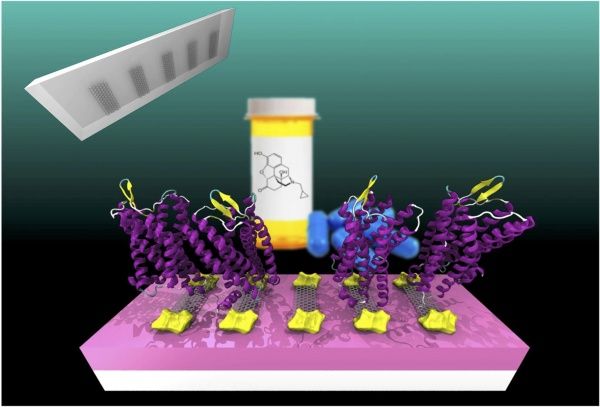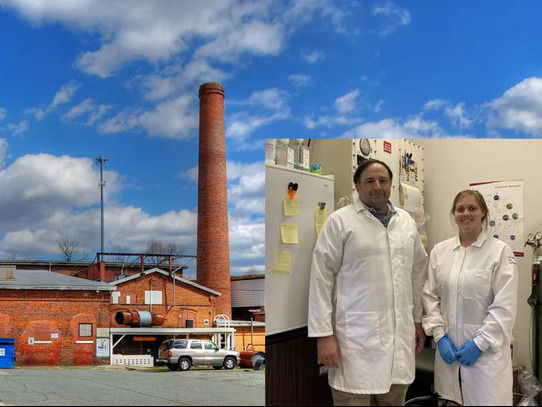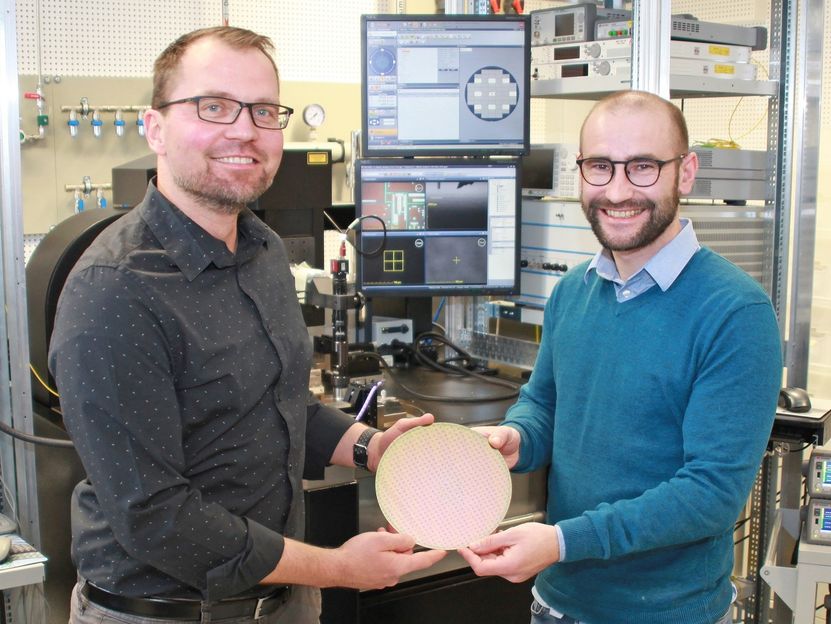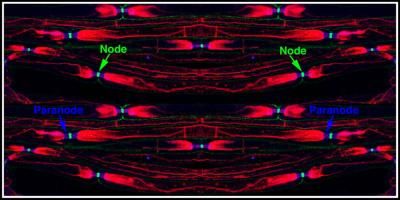Unlocking the opium poppy's biggest secret
Researchers at the University of Calgary have discovered the unique genes that allow the opium poppy to make codeine and morphine, thus opening doors to alternate methods of producing these effective painkillers either by manufacturing them in a lab or controlling the production of these compounds in the plant.

This is researcher Jillian Hagel with opium poppy research plants at the University of Calgary.
Ken Bendiktsen, University of Calgary
"The enzymes encoded by these two genes have eluded plant biochemists for a half-century," says Peter Facchini, professor in the Department of Biological Sciences, who has dedicated his career to studying the unique properties of the opium poppy. "In finding not only the enzymes but also the genes, we've made a major step forward. It's equivalent in finding a gene involved in cancer or other genetic disorders."
Codeine is by far the most widely used opiate in the world and one of the most commonly used painkillers. Codeine can be extracted directly from the plant, most codeine is synthesized from the much more abundant morphine found in opium poppy. Codeine is converted by an enzyme in the liver to morphine, which is the active analgesic and a naturally occurring compound in humans.
"With this discovery, we can potentially create plants that will stop production at codeine. We are also working toward the synthesis of codeine and other opiate drugs more efficiently and economically in controlled bioprocessing facilities," says Facchini. "Our discovery now makes it possible to use microorganisms to produce opiate drugs and other important pharmaceuticals." One of the next steps for the research team is using the codeine gene to produce pharmaceuticals in yeast or bacteria.
Jillian Hagel, a post-doctoral scientist in Facchini's lab, was assigned the task of finding these key genes as part of her Ph.D. research. She succeeded using leading-edge genomics techniques that helped her sort through up to 23,000 different genes and ultimately find a gene called codeine O-dementhylase (CODM) that produces the plant enzyme converting codeine into morphine.
Original publication: "Dioxygenases catalyze the O-demethylation steps of morphine biosynthesis in opium poppy." Nature Chemical Biology 2010.
Most read news
Topics
Organizations
Other news from the department science

Get the life science industry in your inbox
By submitting this form you agree that LUMITOS AG will send you the newsletter(s) selected above by email. Your data will not be passed on to third parties. Your data will be stored and processed in accordance with our data protection regulations. LUMITOS may contact you by email for the purpose of advertising or market and opinion surveys. You can revoke your consent at any time without giving reasons to LUMITOS AG, Ernst-Augustin-Str. 2, 12489 Berlin, Germany or by e-mail at revoke@lumitos.com with effect for the future. In addition, each email contains a link to unsubscribe from the corresponding newsletter.
Most read news
More news from our other portals
Last viewed contents
Category:Industrial_breathing_sets
Margaret_Morse_Nice
Allometric_law

Ingestion of taurine delays aging - Can the aging process be slowed down by raising taurine concentrations to a “young” level?

Excelitas Technologies Acquires Heraeus Noblelight

Ilke Panzer appointed new Greiner Bio-One Division Manager - "We were convinced by her impressive career at major US companies such as General Electric and Johnson & Johnson"

Research combines graphene and painkiller receptor

Molecular machine in nano cage - What a toy: a tiny gyroscope that would fit in a human cell and that can be controlled from the outside

108Labs is building the world’s first cell cultured human milk factory

Was the secret spice in primal gene soup a thickener?

Detection of viruses, bacteria and toxins in real time - IHP scientists win Leibniz Founding Award 2021






















































